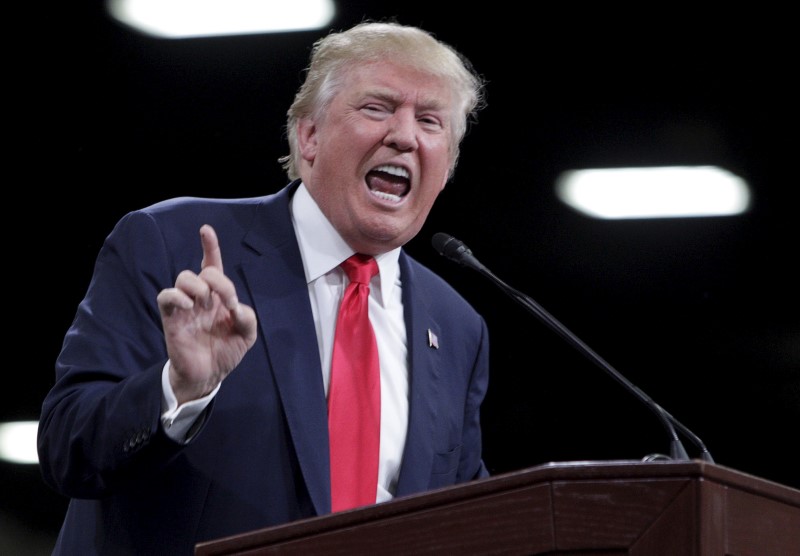By Ginger Gibson
WASHINGTON (Reuters) - American voters are evenly split between Republican presidential candidate Donald Trump and Democratic rival Hillary Clinton as their top choice to address the issue of terrorism following the Paris attacks, a Reuters/Ipsos poll found.
Asked to choose between the entire field of 2016 presidential hopefuls, 20 percent of 1,106 respondents surveyed between Nov. 16-17 opted for Trump. An equal share picked Clinton.(http://polling.reuters.com/#!poll/TM743CY15)
Given Clinton's background as a former secretary of state it is perhaps not surprising that she did reasonably well in the poll. However, Trump's good showing upends an emerging narrative that the Paris shootings and suicide bombings would prompt voters to rethink their support for the real estate billionaire, who leads the field of Republican presidential candidates.
Some pollsters and political pundits had predicted that Republican voters would now gravitate toward establishment candidates like Florida Senator Marco Rubio and former Florida Governor Jeb Bush, who has been languishing in the polls. Both are seen as stronger on foreign policy than Trump and his main Republican rival, retired neurosurgeon Ben Carson. Neither have any experience in government and are running as Washington outsiders.
During a campaign rally on Saturday, Trump blamed stringent gun laws in Paris for the attacks, telling attendees that it would have been a "much different situation" if the victims had been armed. He has also said he would close some mosques to stop Muslim extremist attacks in the United States.
Mirroring national primary polls, Clinton and Trump also took the top marks in the Reuters/Ipsos survey when looking at just voters from their own party. Asked to pick the best Democratic candidate, 52 percent of Democrats polled selected Clinton. When Republicans were asked to choose among their potential nominees, 33 percent said Trump.
After Trump, Republican voters viewed Rubio, a member of the Senate Foreign Relations Committee known for his hawkish views, as the strongest candidate (17 percent) to deal with terrorism. Carson was tied with Bush at around 9 percent.
Of the Republicans polled, 36 percent said they now have more confidence in Trump's ability to be president - the largest show of support in the primary field. Only 10 percent said they were less confident in his abilities following the attacks.
Carson and Rubio were also viewed more favorably as potential presidents by Republicans in the poll. Bush, however, got no immediate bump in confidence of his ability to be president. And only 8 percent of Republicans polled thought he would be the best leader to address terrorism.
The biggest damage came to a trio of Republican candidates who have struggled to rise in the polls.
Of those Republicans polled, 16 percent said they now have less confidence in former Hewlett-Packard CEO Carly Fiorina, 22 percent felt the same about Ohio Governor John Kasich and 19 percent said they have less confidence in Kentucky Senator Rand Paul - who has distinguished himself as the least hawkish candidate in his party.

The poll has a credibility interval of 3.4 percentage points for all voters. When looking at just Democrats or Republicans, the poll has a credibility interval of about 5.4 percentage points.